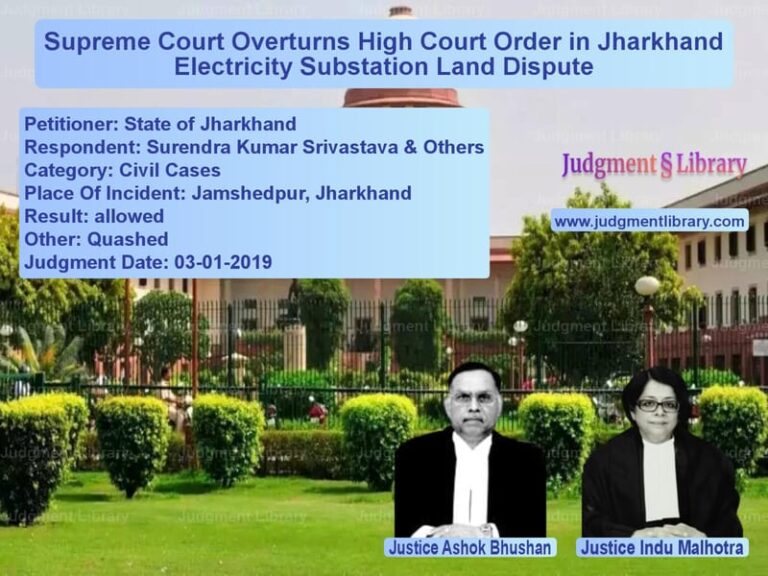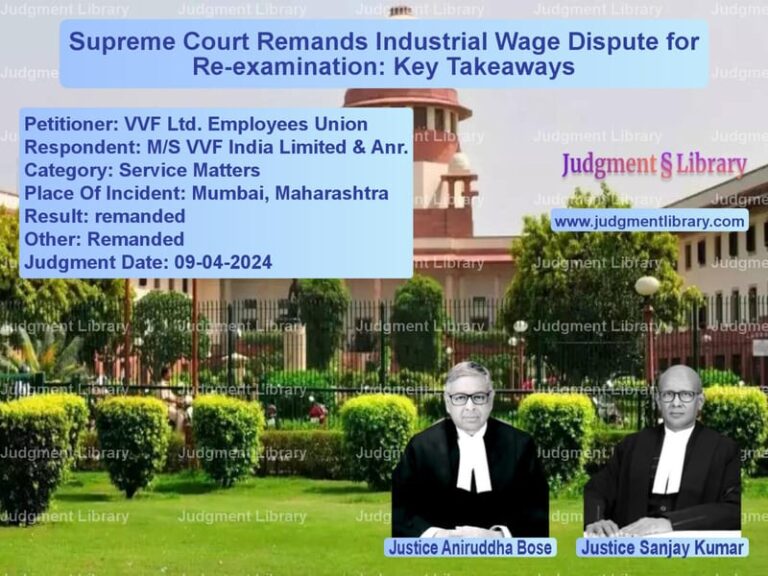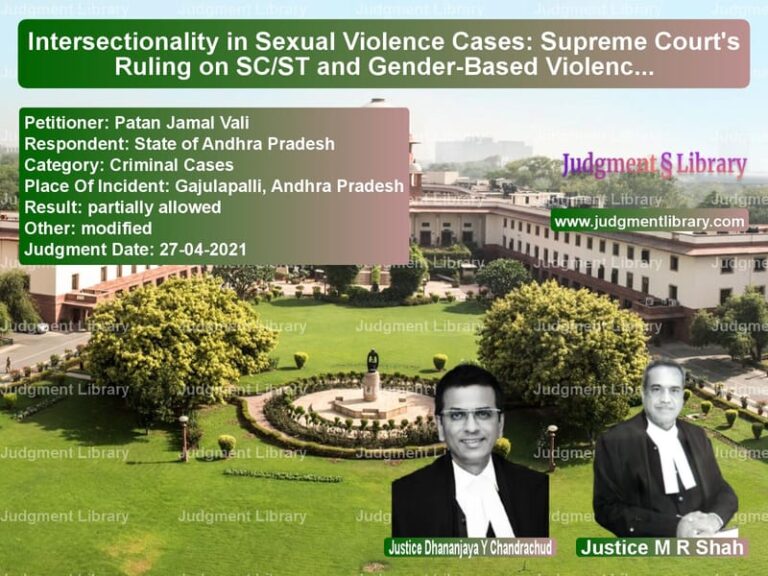Regularization of Contractual Employees: Supreme Court’s Ruling in Jai Narain Vyas University vs. Mukesh Sharma
The case of Jai Narain Vyas University, Jodhpur vs. Mukesh Sharma & Others revolves around the issue of regularization of employees who had been working on a contractual or daily wage basis for an extended period. The Supreme Court had to determine whether these employees, who had worked for 15 to 30 years, were entitled to regularization and, if so, what benefits they should receive.
Background of the Case
The dispute arose when several employees working in various capacities at Jai Narain Vyas University, Jodhpur (JNV University) sought regularization of their services. The employees included:
- Chowkidar/Peon
- Book Attendant
- Lower Division Clerk (LDC)
- Library Assistant
- Junior Accountant
- Staff Nurse
- Security Guard
- Matron
- Lab Attendant
These employees had been engaged through placement agencies and had served the university for periods ranging from 15 to 30 years.
The university had previously regularized the services of six employees in 1999 based on recommendations of a sub-committee. However, despite several representations, the services of the present employees were not regularized.
In response, the employees filed separate writ petitions before the Rajasthan High Court seeking regularization. The Single Bench of the High Court ruled in their favor, directing the university to regularize their services with all consequential benefits. The university appealed the decision before a Division Bench, which upheld the Single Bench’s ruling.
Aggrieved by this, the university approached the Supreme Court.
Petitioner’s Arguments (Jai Narain Vyas University)
The university contended:
- Regularizing such a large number of employees would impose a heavy financial burden on the institution.
- The High Court failed to consider the financial constraints of the university.
- The employees were engaged through third-party contracts and were not directly recruited by the university.
- Granting retrospective benefits for the entire period of service would be unreasonable and financially unsustainable.
Respondent’s Arguments (Mukesh Sharma & Others)
The employees argued:
- They had been working for decades in the university, performing the same duties as regular employees.
- They had a legitimate expectation of regularization, especially since the university had regularized similarly placed employees in 1999.
- Their services were essential to the functioning of the university, and denying them regularization amounted to unfair labor practices.
- They should receive full consequential benefits, including arrears of salary and pension.
Supreme Court’s Observations
The Supreme Court examined the competing interests of the university and the employees. It acknowledged the following:
- The employees had indeed worked for 15 to 30 years, often in roles critical to the university’s functioning.
- The university had previously regularized six similarly situated employees in 1999, creating a precedent.
- However, granting full retrospective benefits from the date of initial engagement would impose an undue financial burden on the university.
The Court stated:
“In the facts and circumstances of the case, we see no reason to interfere with the High Court’s order granting regularization, more particularly, when the concerned employees have continued in service for more than 15-30 years.”
However, the Court recognized the financial constraints faced by the university and found it appropriate to limit the consequential benefits to three years prior to the filing of the writ petitions.
Final Judgment
The Supreme Court ruled:
- The employees were entitled to regularization of their services.
- The benefits of regularization would be granted notionally from the date on which other similarly situated employees were regularized.
- However, actual financial benefits (such as salary arrears) would be limited to three years prior to the filing of the writ petitions.
- The judgment of the High Court was modified accordingly.
Key Takeaways from the Judgment
- Long-term contractual employees can claim regularization: The Court reaffirmed that employees working for decades have a legitimate right to seek regularization.
- Financial constraints must be considered: While employees deserve benefits, the burden on public institutions must also be taken into account.
- Retrospective benefits can be restricted: The Court struck a balance by granting regularization but limiting back wages to a reasonable period.
- Precedents matter: Since the university had regularized other employees in 1999, denying regularization to similarly placed employees was deemed unfair.
Conclusion
This Supreme Court ruling sets an important precedent for regularization of contractual employees in public institutions. While recognizing the rights of employees, the Court also ensured that financial implications on educational institutions were managed reasonably. The decision underscores the importance of balancing employment rights with economic feasibility in cases of long-term temporary employment.
Petitioner Name: Jai Narain Vyas University, Jodhpur.Respondent Name: Mukesh Sharma & Others.Judgment By: Justice M.R. Shah, Justice B.V. Nagarathna.Place Of Incident: Jodhpur, Rajasthan.Judgment Date: 28-03-2022.
Don’t miss out on the full details! Download the complete judgment in PDF format below and gain valuable insights instantly!
Download Judgment: jai-narain-vyas-univ-vs-mukesh-sharma-&-othe-supreme-court-of-india-judgment-dated-28-03-2022.pdf
Directly Download Judgment: Directly download this Judgment
See all petitions in Employment Disputes
See all petitions in Public Sector Employees
See all petitions in Contractual Employment
See all petitions in Recruitment Policies
See all petitions in Pension and Gratuity
See all petitions in Judgment by Mukeshkumar Rasikbhai Shah
See all petitions in Judgment by B.V. Nagarathna
See all petitions in partially allowed
See all petitions in Modified
See all petitions in supreme court of India judgments March 2022
See all petitions in 2022 judgments
See all posts in Service Matters Category
See all allowed petitions in Service Matters Category
See all Dismissed petitions in Service Matters Category
See all partially allowed petitions in Service Matters Category







